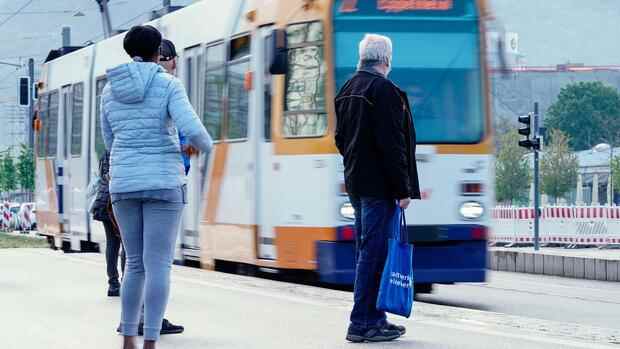Berlin For days and finally also nights, the party and faction leaders as well as the responsible ministers of the traffic light coalition had struggled for the relief package. The agreement was reached at the end of March.
It was obvious that the SPD, Greens and FDP all brought their own package and put together a big package. The SPD gets grants for welfare recipients, the Greens nine-euro train ticket and energy flat rate, the FDP the tank discount.
But now resistance to the hard-won compromise is forming within its own ranks. There is talk of “heavy discussions” in the parliamentary group meetings on Tuesday. On Thursday and Friday, the Bundestag wants to decide on the first part of the measures and discuss further measures. Time is of the essence: on June 1st, the majority of the package should already benefit the citizens.
However, representatives of the Green parliamentary group do not simply want to accept the tax cut on fuel that was implemented by Finance Minister Christian Lindner (FDP). “I have been pointing out for weeks that it is not the oil price, but the gas price that is the more serious problem for most consumers and companies,” economic policy spokesman Dieter Janecek told the Handelsblatt.
Top jobs of the day
Find the best jobs now and
be notified by email.
The Green politician warns that the tank rebate could increase demand for oil, which runs counter to plans to save oil to the detriment of Russia. “Parliament is now required to examine the target effect of the cabinet proposal, especially in the direction of independence from Russian energy imports,” he said.
Fuel prices have risen sharply as a result of the Russian crisis.
(Photo: dpa)
That’s diplomatic language. Some people in his parliamentary group formulate this more clearly behind closed doors: “Why should we buy more oil from Vladimir Putin and finance his war of aggression in Ukraine while the rise in fuel prices in Germany has slowed down again?”
More Handelsblatt articles on the subject:
With the FDP, on the other hand, there is anger about the energy flat rate, a one-time subsidy of 300 euros. The finance committee agreed on Wednesday to pay out in September; the lump sum is to be decided on Thursday. But the details are still being debated. The lump sum is to be paid out by the employer – and would therefore be withheld from most pensioners and students.
“But the energy flat rate should be given to all those who also have higher energy costs,” said FDP economic politician Manfred Todtenhausen. The bureaucracy costs for the payment of the lump sum are also criticized. According to the Federal Ministry of Finance, they should amount to 225 million euros.
The problem: renegotiations are complicated because every measure is part of the package. The FDP leadership was only reluctant to carry the nine-euro ticket because they had received the tank discount for it, as coalition circles said.
Only three weeks left
Green Vice-Chancellor Robert Habeck recently made it clear that he believes cabinet decisions are binding. Parliament is independent and has the power, at least on paper, to bring about fundamental changes or to cancel measures.
But none of the parliamentary groups will afford such an affront to their own leaders. However, the most recent development is relevant because the schedule is tight. The package is intended to relieve citizens from June 1st. There is actually no room for fundamental discussions.
These are now also heating up the states, which dealt with the financing of the relief package in a special meeting of the Federal Council on Wednesday. In addition to the limited group of recipients for the energy flat rate, the train ticket in particular causes trouble. For nine euros, citizens should be able to use local public transport unlimitedly for a month during the summer.
The federal government is ready to bear the expected revenue shortfalls of the federal states of 2.5 billion euros. However, the federal states are demanding an additional 1.5 billion euros due to increased personnel and fuel costs. “The whole thing has such serious flaws” that he cannot recommend approval, said Hesse’s Prime Minister Volker Bouffier (CDU).
The chairwoman of the conference of transport ministers, Bremen’s mobility senator Maike Schaefer (Greens), emphasized: “The nine-euro ticket should be a success and not a non-starter.”
The financial policy spokeswoman for the Greens in the Bundestag, Katharina Beck, cannot understand the criticism. After all, the federal government bears “the lion’s share” of the financing. According to her statement, the last word has not necessarily fallen yet. A “sharpening of the burden sharing between the federal states and the federal government” could still be discussed.
More: Relief packages from the federal government for high energy prices: the wrong people are benefiting
